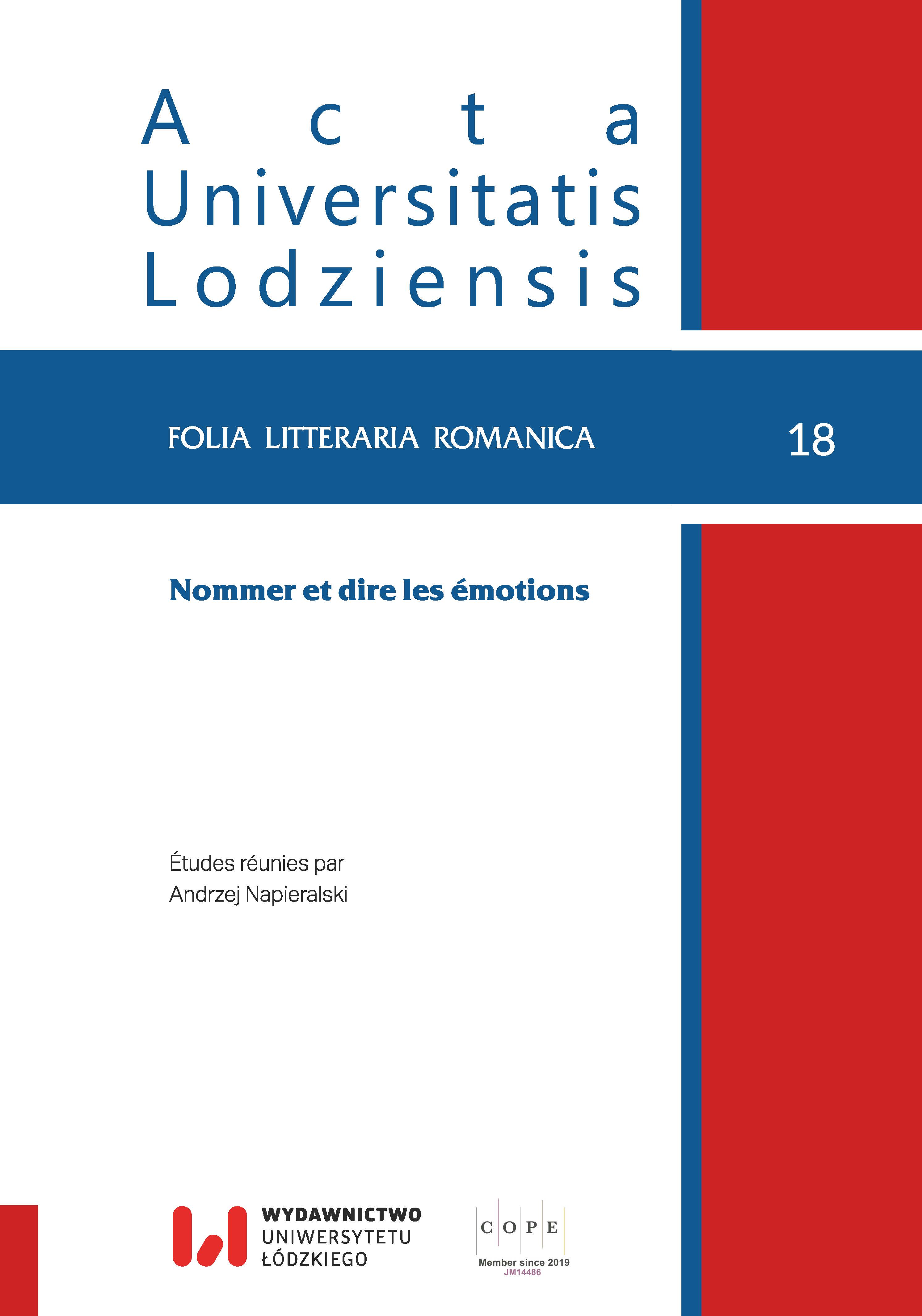The Return to the Myth of Ulysses in Three Plays of the 20th-Century Spanish Theatre
DOI:
https://doi.org/10.18778/1505-9065.18.10Keywords:
myth, Odyssey, transformation, theater, Gonzalo Torrente Ballester, Antonio Buero Vallejo, Antonio GalaAbstract
The reception of the heritage of the Mediterranean Antiquity is one of research areas in theatre. The mythological tradition is the basic structure of creative imagination. This article reviews the presence of the Odyssey in the Spanish theatre of the 20th century. It examines the influence, use, and transformation of the Odyssey in three works: El retorno de Ulises (1946) by Gonzalo Torrente Bellester, La tejedora de sueños (1952) by Antonio Buero Vallejo, and ¿Por qué corres Ulises? (1975) by Antonio Gala. The play El retorno de Ulises recreates the classic Homeric motif to present the theme of the struggle of a human being with its own myth and show the process of self-demitification. Odysseus is confronted with his own legend. In La tejedora de sueños, Ulysses reveals the lack of inner heroism. In the play titled ¿Por qué corres Ulises? Gala presents the fall of the hero. The author chooses the world of myth to reflect a society far from spiritual values. The myth of Ulysses serves the Spanish playwrights as a source of inspiration to deal with the human nature and to reflect on the world.
Downloads
References
ARROYO MARTÍNEZ, Laura (2010), La desmitificación de Ulises en el teatro de Antonio Gala, Madrid, Ediciones Clásicas
Google Scholar
BEDELL STANFORD, Wiliam (1963), The Ulisses theme. A study in the adaptability of traditional hero, Oxford, Blackwell
Google Scholar
BUERO VALLEJO, Antonio (1985), La tejedora de sueños. Llegada de los dioses, Madrid, Cátedra CAMARCHO ROJO, José María (2019), “La tradición griega en las literaturas hispánicas contemporáneas: la Odisea”, Florentia iliberritana. Revista de estudios de antigüedad clásica, no 30, p. 325-343
Google Scholar
CASSIRER, Ernst (1972), Filosofía de las formas simbólicas, México, FCE
Google Scholar
DOMÉNECH, Ricardo (1979), El teatro de Buero Vallejo, Madrid, Gredos
Google Scholar
GALA, Antonio (1984), Las cítaras colgadas de los árboles. ¿Por qué corres, Ulises?, Madrid, Espasa- Calpe
Google Scholar
GARCÍA BLANCO, Pablo (2010), Contra la placidez del pantano. El teatro de Gonzalo Torrente Ballester, Vigo, Editorial Academia del Hispanismo
Google Scholar
GARCÍA ROMERO, Fernando (1999a), “Observaciones sobre el tratamiento del mito de Ulises en el teatro español contemporáneo”, Analecta Malacitana, no 3, p. 513-526
Google Scholar
GARCÍA ROMERO, Fernando (1999b), “El mito de Ulises en el teatro español del siglo XX”, Cuadernos de filología clásica, no 9, p. 281-301
Google Scholar
GONZÁLEZ-COBOS DÁVILA, Carmen (1979), Antonio Buero Vallejo. El hombre y su obra, Salamanca, Ediciones Universidad Salamanca
Google Scholar
MOYA DEL BAÑO, Francisca (2009), “Sastre y Gala: dos posturas ante el mito” in Mitos en la literatura española e hispanoamericana del siglo XX (J.A. López Férez éd.), Madrid, Ediciones Clásicas, p. 527-544
Google Scholar
ORTEGA Y GASSET, José (1957), Obras Completas, El espectador (1916-1934), Tomo 2, Madrid, Revista de Occidente
Google Scholar
PACO SERRANO, Diana de (2005), “Mitos e identidades en el teatro español contemporáneo” in Mitos clásicos y teatro español. Identidad y distanciamiento (M.F. Vilches De Frutos éd.), Foro hispánico, no 27, p. 23-29. (https://doi.org/10.1163/9789401202084_004)
Google Scholar
DOI: https://doi.org/10.1163/9789401202084_004
PAULINO AYUSO, José (1994), “Ulises en el teatro español contemporáneo. Una revisión panorámica”, ALEC, no 19, p. 327-342
Google Scholar
PROCOPIO, Alessandra (2018), El mito de Ulises y Penélope en el teatro español contemporáneo, Madrid, Fundamentos
Google Scholar
TORRENTE BALLESTER, Gonzalo (1977), Obra Completa, tomo 1, Barcelona, Destino
Google Scholar
TORRENTE BALLESTER, Gonzalo (1982), Teatro, Barcelona, Destino
Google Scholar
VILCHES DE FRUTOS, Maria Francisca (1983), “Introducción al estudio de la recreación de los mitos literarios en el teatro de la postguerra española”, Segismundo, no 37-38, p. 183-209
Google Scholar
Downloads
Published
Versions
- 2023-10-30 (2)
- 2023-10-30 (1)
How to Cite
Issue
Section
License

This work is licensed under a Creative Commons Attribution-NonCommercial-NoDerivatives 4.0 International License.













